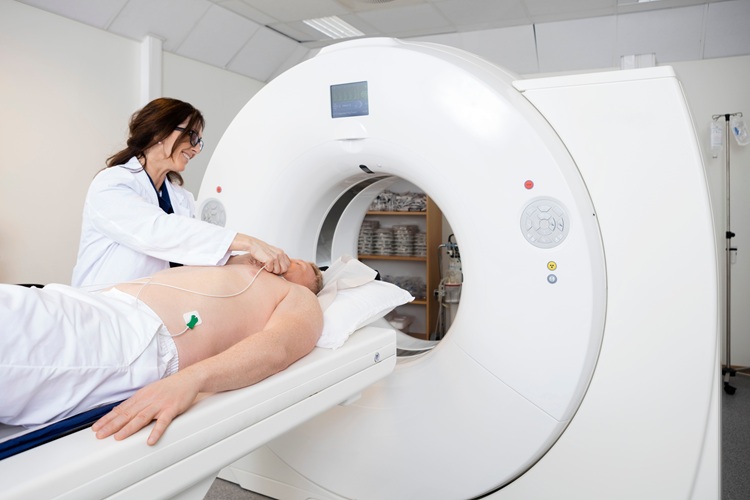AI Detects Hidden Heart Disease in Existing CT Chest Scans
Posted on 20 Jun 2025
Coronary artery calcium (CAC) is a major indicator of cardiovascular risk, but its assessment typically requires a specialized “gated” CT scan that synchronizes with the heartbeat. In contrast, most chest CT scans—routinely performed for various clinical purposes such as lung cancer screening—are “nongated” and not used to quantify CAC. This creates a missed opportunity for early identification of patients at risk for heart disease. Now, researchers have developed a deep learning tool that can accurately quantify CAC levels from these existing nongated scans, enabling large-scale cardiovascular risk prediction without requiring new imaging.
The AI-based tool, known as AI-CAC, was developed by researchers from Mass General Brigham (Boston, MA, USA). Recognizing that CAC is still visible in nongated scans despite some motion blur, the team designed AI-CAC to analyze standard chest CT images and identify individuals with high CAC levels who are at increased risk for cardiovascular events. AI-CAC was trained using chest CT scans from routine clinical care involving veterans at 98 VA medical centers. To test its performance, the researchers applied AI-CAC to a sample of 8,052 CT scans, simulating CAC screening within standard imaging workflows. The tool achieved 89.4% accuracy in identifying the presence of CAC and 87.3% accuracy in classifying CAC scores as above or below 100, a threshold for moderate risk.

The study, published in NEJM AI, also demonstrated that AI-CAC was predictive of long-term outcomes. Patients with CAC scores over 400 had a 3.49-fold higher risk of death over 10 years compared to those with a score of zero. Cardiologists reviewing the model's results confirmed that 99.2% of individuals flagged with very high CAC scores would benefit from lipid-lowering therapy. By leveraging existing chest CT scans, AI-CAC offers a cost-effective and scalable way to assess cardiovascular risk, helping clinicians identify high-risk individuals who might otherwise go undiagnosed. The researchers plan to extend the tool’s validation to the general population and explore whether it can track changes in CAC over time in response to treatment.
“Our study shows that important information about cardiovascular risk is going unnoticed in these scans,” said senior author Hugo Aerts, PhD, director of the Artificial Intelligence in Medicine (AIM) Program at Mass General Brigham. “Our study shows that AI has the potential to change how clinicians practice medicine and enable physicians to engage with patients earlier, before their heart disease advances to a cardiac event.”














